10 kitchen makeover tips that can help you lose weight
Rethinking some of your at-home habits could help support your weight-loss goals.
Updated on September 26, 2025

Making small changes around your home can encourage healthy weight management. One way to support your goals could be to rethink how you've set up your kitchen.
Jessica Hargroder, a registered dietitian nutritionist from St. Mark’s Hospital in Salt Lake City, Utah, explains a few key principles, and offers tips on how to change your environment to inspire healthier eating.

An empty refrigerator isn’t the answer
You might think emptying your fridge of everything except celery will force you to avoid calorie temptation. But this common diet pitfall may set you up for failure by tempting you to order takeout.
The no-food-in-the-house strategy is especially impractical if you have a family—hungry, active kids need afterschool snacks and high-calorie fuel for sports, along with the standard three meals a day. A steady diet of take-out could negatively affect not only your health but also the health of others in your home.

Buy ready-made healthy snacks
Instead of an empty kitchen, a more realistic approach may be to store a range of quick, healthy snacks.
“A common reason why people eat junk food is that it's so easy; you don't have to fix it,” says Hargroder. “But you can have the same convenience with healthy snacks.”
Try pre-packaged low-fat cheese sticks, nuts, dried fruit, turkey slices or pre-cut vegetables with to-go hummus packs. If you have time in the evenings, prep snacks for the entire week, so all you’ll have to do on busy days is grab and go.

Keep a running grocery list in the kitchen
To avoid scrambling for last minute recipes and coming up empty handed, figure out what you’ll prepare each week in advance. “At St. Marks Weight Treatment Center, we advise people to make a list of their favorite meals and snacks to post on the fridge or keep handy,” says Hargroder. “Then you've got meal ideas that you can pull throughout the week, or that you can easily shop for, so that there’s always a nutritious option on-hand.”
Make a list, either on paper or in your cell phone, before stepping into a grocery store. If you have all your healthy items written down, it can help keep you on track while shopping.

Make smart choices at warehouse stores
It’s tempting to buy in bulk because it usually means big savings. But wholesale shopping might be costly to your health if it prompts you to eat more food than you should. If wholesale shopping is a must for your budget, try re-packaging foods into single-serving baggies as soon as you get home to help with portion control.
There are many healthy options at warehouse stores, like Costco. Consider these options, such as frozen vegetables and fruits, lean meats, nuts, seltzer and olive oil.
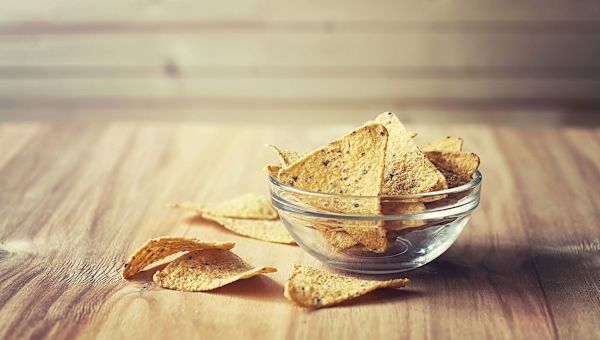
Serve yourself one portion
With high-calorie snacks, measure out one portion. Then put the remainder away and eat your serving, recommends Hargroder. If you really want seconds, serve yourself a half portion. This approach can stop you from mindlessly eating from the container—and having several servings without realizing it.

De-clutter your counters
Try to keep you countertops clear of desserts and packaged foods like cereal and chips.
“Move that stuff to the back of the cabinet where you can't see it, and put the foods you want to eat up front,” says Hargroder. “Arrange the shelf so you notice the good foods first because you’re less likely to reach for stuff in the back.”
Instead, keep a bowl of fruit on display and you may be more likely to reach for an apple, orange, or other fresh option.
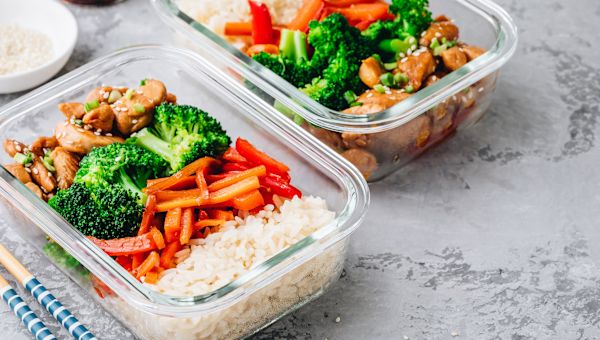
Make food prep easy and fun
There are some other small adjustments that can help ensure your kitchen is a healthy cooking zone:
- Remove the TV, bar stools and comfy chairs; these encourage lounging and boredom snacking
- Leave your cutting board on the counter; the storage cabinet might be two inches away, but not having to search for it makes chopping veggies that much simpler
- Make sure your kitchen has good lighting and clean surfaces so that meal prep feels bright, cheery and hassle-free
- Keep a radio or phone speakers in the kitchen to play music while you cook—and maybe even dance while you’re waiting for the pasta water to boil.
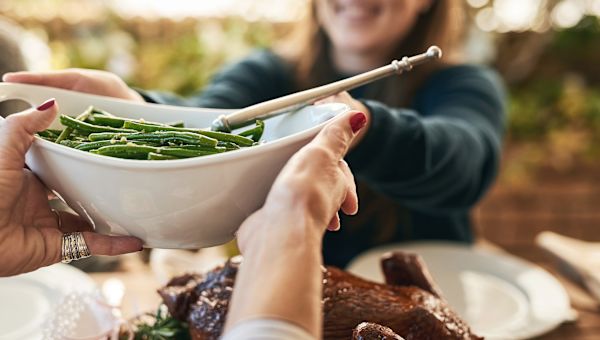
Eat at the table but leave serving plates in the kitchen
“Eating meals at the table can be really helpful,” says Hargroder. “And so can having set meal times. A big problem for people is grazing. Sometimes people get into the habit of just eating all the time.”
Establish a routine of having structured, planned meals at the table. But instead of family-style dining—with platters and bowls placed in the middle of the table—try buffet style. Plate foods in the kitchen from cookware on the stove or serving bowls on the counter. You may eat less than if you put those serving trays directly on the table.
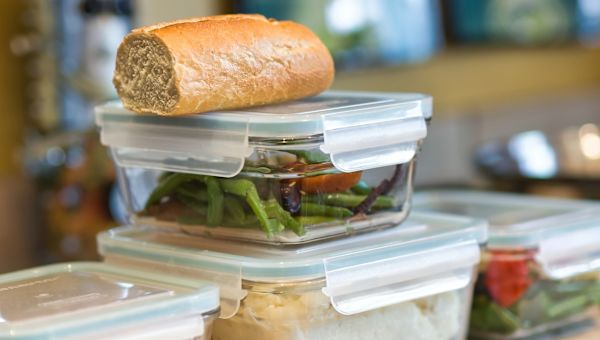
Portion out leftovers before you eat
Go one step further and separate out leftover portions, storing them before you even sit down to the table. That creates steps between you and the food, as well as extra work. If you want more, you’ll have to unpack and reheat it.
It also helps if you store leftovers in separate serving sized containers instead of one large dish. This ensures you aren’t overeating at your next meal. Plus it makes it much easier to pack tomorrow’s lunch.

Store unhealthy leftovers out of sight
Wrap leftovers and unhealthy snacks in tin foil or keep them in opaque containers. If it’s something especially unhealthy, like baked good and sweet desserts, wrap it up and store it in the freezer. Wrap slices of cake or muffins individually so you don’t have to defrost the entire batch. You’ll have to search for it and defrost before eating—and that gives you a lot of time to reconsider.
More On


video

article
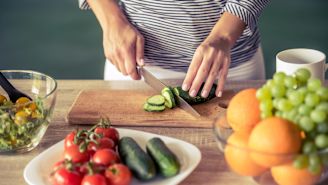
slideshow


video


video
